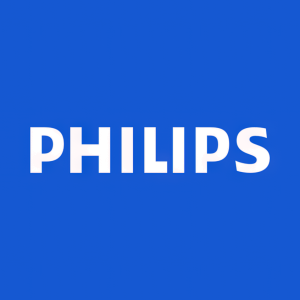130 years of Philips innovation, collaboration, and social responsibility
On May 12, 2021, Royal Philips (PHG) commemorated its 130th anniversary, reflecting on a legacy of innovation aimed at enhancing healthcare. Philips aims to impact 2.5 billion lives annually by 2030 through robust R&D investments of EUR 1.8 billion, with a portfolio of around 59,000 patents. The company has pioneered various medical imaging technologies since World War I and continues to develop AI-driven healthcare solutions. Recent innovations include the AI Workflow Suite and the Azurion Therapy System, emphasizing partnerships with leading healthcare institutions to advance diagnostic and treatment capabilities.
- None.
- None.
Insights
Analyzing...
May 12, 2021
Amsterdam, the Netherlands – Royal Philips (NYSE: PHG, AEX: PHIA), a global leader in health technology, today celebrated 130 years of innovation, collaboration, and social responsibility. During its rich history since being founded on May 15, 1891, in Eindhoven in the Netherlands, the company has continuously reinvented itself to remain relevant to society. Today, Philips is a leading health technology company with a purpose to improve the lives of 2.5 billion people a year by 2030 through meaningful innovation.
“The company’s 130th anniversary is a celebration of the continuous innovation journey that has enabled Philips to positively impact the lives of so many people around the globe,” said Frans van Houten, CEO of Royal Philips. “It’s also about looking forward – continuing to innovate, collaborate and live up to the highest standards of doing business responsibly and sustainably. We will continue to team up with innovators, experts and society to help create new ground-breaking solutions to today’s healthcare challenges.”
New sculpture of Gerard Philips
As a tribute to 130 years of innovation and collaboration, Philips will offer an artwork of Gerard Philips, who together with his father Frederik Philips, founded the company. The sculpture will be unveiled in Eindhoven city center at a newly developed public location. Gerard later also founded Philips’ research laboratories in Eindhoven, the strong foundation of Philips’ global innovation strength today, which currently includes five innovation hubs and multiple innovation and manufacturing sites. Philips spends EUR 1.8 billion annually on R&D to fuel the company’s growth and intellectual property, which comprises approx. 59,000 patent rights and 31,000 trademarks.
Innovation and entrepreneurship
Philips’ entry into health technology took place during the First World War when it applied the skills it had developed for manufacturing lightbulbs to repairing, and subsequently manufacturing, X-ray tubes for diagnostic imaging, rapidly innovating their design to minimize X-ray exposure and improve image quality. Since then, Philips has innovated virtually every major medical imaging modality from ultrasound to MRI and CT systems.
Philips’ current innovations span the health continuum from healthy living and disease prevention to diagnosis, treatment, and care in the home. By bringing together devices, systems, software, artificial intelligence (AI) and advanced analytics, the company today develops intelligent solutions that help consumers around the world to live healthy lifestyles and enable healthcare providers to deliver on the quadruple aim: enhancing the patient experience, improving health outcomes, lowering the cost of care, and improving the work life of care providers.
Recent examples include:
- Philips’ AI Workflow Suite – IntelliSpace – a solution for AI-assisted radiology workflows, automatically distributing data to AI applications to increase efficiency/productivity, reduce staff overload, and enhance the patient experience.
- Philips Image Guided Therapy System – Azurion – accelerating the move from open surgery to minimally-invasive surgery, enabling patients to recover faster and hospital systems to reduce costs.
- Philips’ eICU telemedicine program and wearable biosensor – enabling patients to be expertly monitored 24/7 inside and outside hospitals.
- AI-powered personal health innovations, such as Philips Sonicare Power Toothbrush 9900 Series Prestige with SenseIQ and its advanced Shaver 9000 Series with SkinIQ technology, are driving the personalization of consumer health through solutions that adapt to an individual user’s unique behavior and needs.
Collaboration and partnerships
In an ever more complex and interconnected world, meaningful innovation in healthcare also requires co-creation through partnerships and collaborations with leading clinical researchers and care providers. Key examples of leading institutes that Philips collaborates with include:
- University Medical Center Utrecht (The Netherlands) - advancing precision diagnosis through breakthrough quantit
FAQ
What is Royal Philips' stock symbol?
Royal Philips' stock symbol is PHG.What anniversary did Royal Philips celebrate in May 2021?
Royal Philips celebrated its 130th anniversary on May 12, 2021.What is Philips' goal for healthcare by 2030?
Philips aims to improve the lives of 2.5 billion people a year by 2030.How much does Philips invest in R&D annually?
Philips invests EUR 1.8 billion annually in research and development.What recent innovations has Philips introduced?
Recent innovations include the AI Workflow Suite and the Azurion Therapy System.







